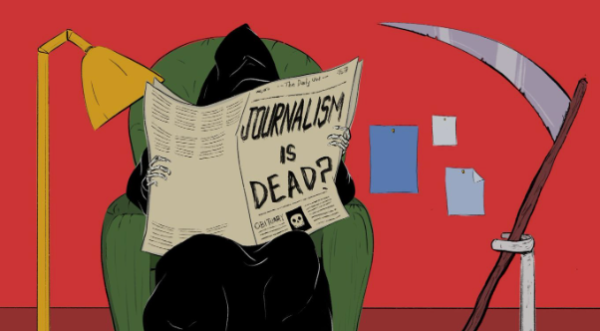The Boston Bomber is Guilty but Not Worthy of Death Penalty
The threat of a terrorist attack seems like a foreign notion, however, it became very real to the runners in the Boston Marathon. On April 13, 2013, people were running, cheering, and supporting the Boston Marathon runners when at 2:49 p.m, two cooker bombs, which is comprised of explosives inside pressure cookers, went off 210 yards away from the finish line. Three people were killed and an estimated count of 264 were injured because of the bombs set by two Chechen brothers named Tamerlan and Dzhokhar Tsarnaev. On April 18, the brothers were identified, and that same day they were spotted. During the firefight, a police officer was injured and Tamerlan was shot several times and declared dead, but Dzhokhar escaped. He was eventually caught, and on Jan. 5, 2015, the trial for Dzhokhar began with many advocating his death. However, the implementation of the death penalty would be unjustified. A lifetime prison sentence would be far more effective and just.
Dzhokhar was born in Kyrgyzstan and emigrated to the U.S. when he was eight years old. After high school, he received a $2,500 scholarship and attended Dartmouth College with the hopes of becoming a dentist. Dzhokhar had aspirations just like every young boy in his first year of college, and the fact that he was nineteen when he set the cooker bombs is terrifying because of the fact that he was so young. Simply because someone turns 18 and is considered an ‘adult’ does not mean that everyone acts like one. According to NPR, the brain does not stop mental development until the age of 25. Therefore, though he was legally an ‘adult,’ he was not one mentally.
Dzhokhar was blinded by his youth. He and his brother were the reason for three deaths, but killing Dzhokhar will not bring the deceased back. People think that killing him will prevent future terrorist attacks, but terrorists will not be deterred by the death penalty. Lifelong prison would be more effective because it would make Dzhokhar live with the consequences of his actions.
The death penalty costs more than a life sentence. Washington has carried out five executions since reinstatement, costing a total of $24 million per execution. There is no reason to spend more money on an unjust and ineffective method when solitary confinement is far more impactful and cost efficient.
Dzhokhar was not alone in this act of terrorism. His brother was allegedly the mastermind behind the operation. Dzhokhar could have succumbed to the pressure to conform. It is important to understand that while Dzhokhar acted the way he did, he was not the one with the idea and therefore can not bear the full brunt of the punishment.
Dzhokhar was blinded by his youth and was under the influence of his brother. He should be put in lifelong imprisonment for the crimes he has committed but should not receive the death penalty. The families who have lost loved ones may want to see whoever caused them so much pain gone. However, the idea that the execution of Dzhokhar is pure justice is flawed because there comes a point where justice is not justice, but just revenge. Killing Dzhokhar will not make everything better because the pain will still exist. Dzhokhar is wrong for engaging in the crimes and destruction he has executed, however, seeking to justify the loss of life through the loss of another does not make sense. Making the killer see the wrong is far more important than swift justice.
Hello there! Our goal is to provide relavent, engaging journalism for readers of all ages. Your donation will support the student journalists of the Wolfpacket at Claremont High School, and will allow us to purchase equipment, print our monthly issues, and enter in journalism competitions. We appreciate your consideration!

Bridget Englebert is a senior at Claremont High School and this is her fourth year on Wolfpacket. Working as Co Head Editor for the sports section, she...













